What Every Parent Oughta Know About Night Terrors
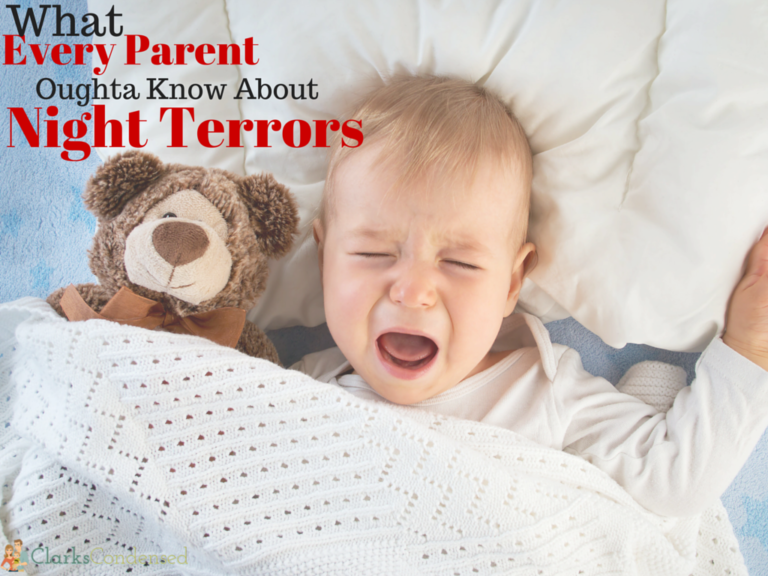
I heard a scream of terror come from Jack’s room.
“Oh no…” I thought to myself. It was happening again. I wonder how long it would go on, and what I could do to stop these from happening.
One of the worst feelings is not being able to comfort your child. When Jack is hurt or sad, I’m able to cuddle him, give him kisses, and tell him he’ll be alright.
But when these happen? It’s a whole other story.
I’m talking about night terrors.
If you have no idea what they are, consider yourself lucky. Because they are not fun, and they are actually quite scary – especially the first time they happen.
What are Night Terrors?
Night terrors are not nightmares. They happen a few hours after a child falls asleep, when they are in a deep, non-REM sleep. It happens when they are transitioning to a lighter sleep that involves REM. Most people can transition through sleep cycles easily, but with some children, it causes enough disturbance to frighten the child into a night terror. I read that it is caused by “over-arousal of the central nervous system during sleep. This may happen because the CNS is still maturing
Children do not really remember night terrors as they do nightmares. There’s really no visual disturbance associated with them, so they don’t remember them in the way that they would remember a nightmare. Whenever we asked Jack about them (well, when he was old enough to talk), he never seemed to recall anything happening.
Night terrors occur in about 3-6% of children. So, chances are, most parents will never deal with them. But if you are one of the parents who do, you know they can be scary.
What Causes Them?
According to KidsHealth.org:
Night terrors are caused by over-arousal of the central nervous system (CNS) during sleep. This may happen because the CNS (which regulates sleep and waking brain activity) is still maturing.
Some kids may inherit a tendency for this over-arousal — about 80% who have night terrors have a family member who also experienced them or sleepwalking (a similar type of sleep disturbance).
Why these happen to certain children and not others isn’t always known. Fortunately, most children will outgrow them, and there usually isn’t an underlying healthy condition. I think I read that only about 1% of adults experience night terrors.
There typically is a trigger for them though. With Jack, we realized they happened when he was either overly tired or when we were traveling (which is something I’ve heard a lot of other parents mention about traveling!) With Oliver, he’s only six months, but when he was on Tamiflu when he has Influenza A, they caused him to have night terrors (which our doctor later said is actually a relatively common side effect.) Here are a few other things that may cause Night Terrors:
- Stress
- Sleeping in a new place
- Family member who had similar issues or experienced sleep walking
What to Do?
The hardest thing about night terrors is that there really isn’t much you can do while they are happening.
You can’t wake up your child. Touching them will often make it worse. I tried to hug Jack once when they happened, and he completely flipped out. And that was hard to feel like I was making things worse. He would always have this complete blank look on his face. I could tell he wasn’t really all *there*.
It’s a waiting game and most children will calm down and go back to sleep eventually (some night terrors last as long as 20 minutes.) I do think it helps to be there with your child as they go through it. They may not remember it, but in my experience, I think Jack could sense our presence there.
They are hard, but as I mentioned before, the child will not remember them and will eventually outgrow them. Jack has them occasionally still, but not nearly as frequently as before.
Prevention
If your child starts to experience night terrors, I think it’s very important to pay close attention to triggers. If you have to, keep a journal of how your child’s day goes, make note of anything abnormal throughout the day, and see if you can pinpoint any patterns.
For Jack, we realized he was having them when he was out of his schedule. Either he would miss a nap, or he would stay up way too late and be overly tired. He also experienced them when we went out of town a few times, so we were in an unfamiliar place.
- Establish a good sleeping schedule – make sure your child takes naps if they are getting tired early in the day. Don’t let them get overly tired!
- Create a reliable bedtime routine. With Jack, he’s always really relied on having a predictable bedtime routine. Every night, we give him a vitamin, use his inhaler, brush and floss his teeth, and then he gets jammies on, we read scriptures and say a prayer, and then Forrest reads him books.
- Reduce the stress in their life.
- From what I’ve read, some professionals recommend waking up your child before the time they typically have a night terror. Most night terrors occur 2-3 hours after a child falls asleep. You can keep track of what time they usually happen, and shortly before that, gently stir them. We never tried this, but it might work. It is called scheduled awakenings, and it’s thought to decrease night terrors by almost 90%.
Here are some other posts on child sleep you may be interested in (click the image to be taken to the post):

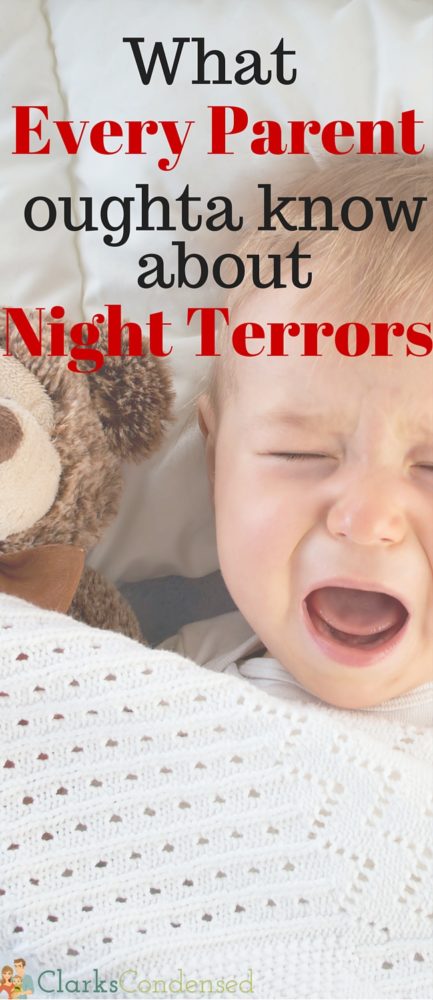
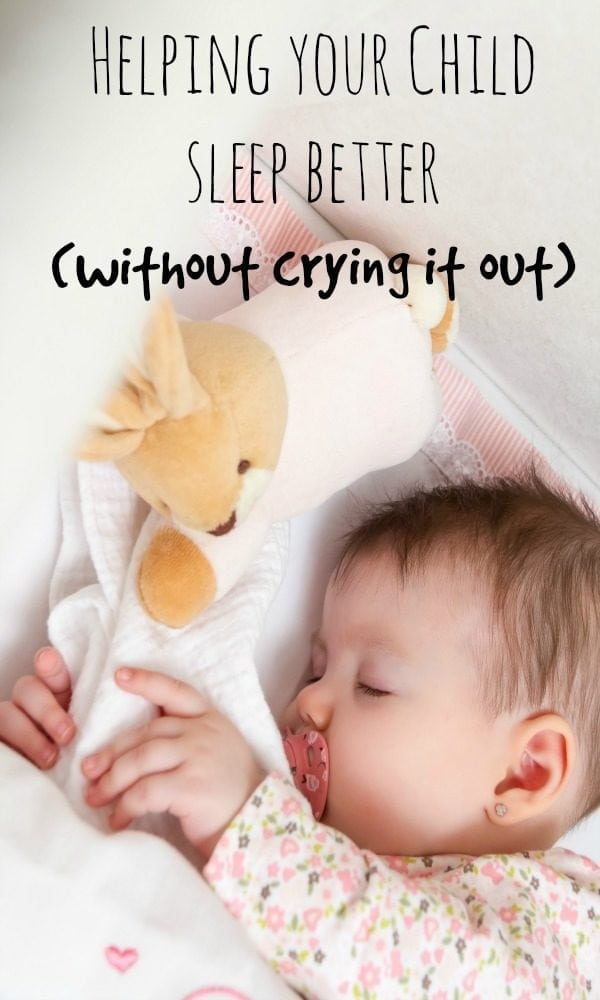

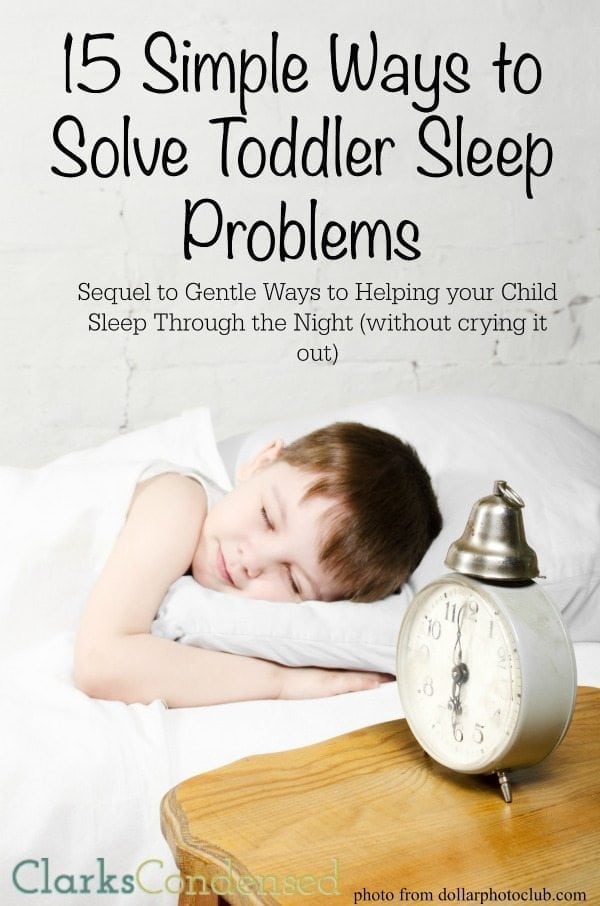




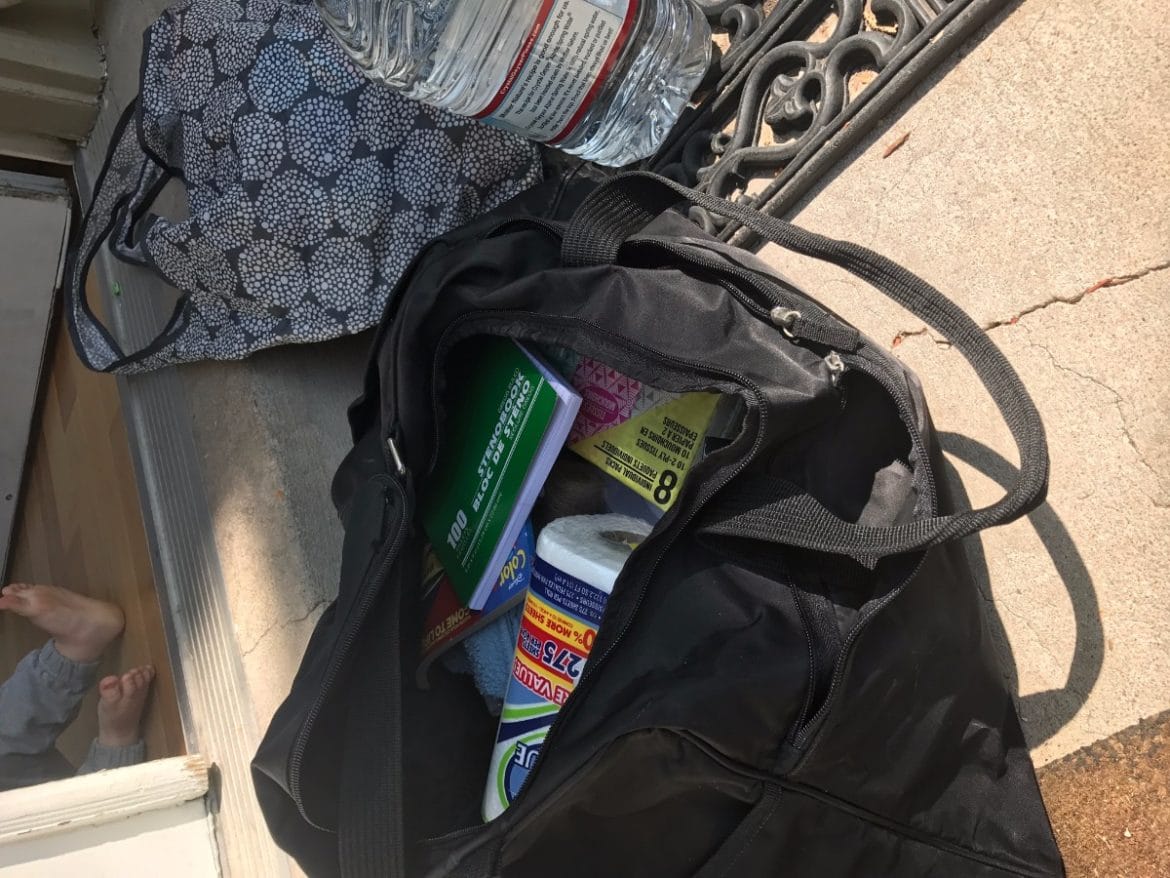

I was browsing around and saw another post about help with sleeping through the night etc and wanted to mention my experience. Once I got here I that you pointed out preventing it by kind of waking the child up. My youngest son, now 9, has had night terrors since he was a toddler and I didn’t find out about this until last year. When it’s time for us to go to bed I simply go in and kiss him goodnight and tell him to have sweet dreams. He opens his eyes a little and goes right back to sleep. Since I started doing this he hasn’t slept walked or had terrors. It was a blessing because I wasn’t sleeping at all. Great tips. I wish I knew about the app and vibrating mattress product sooner.
I am glad that you found something that seems to work! It is so hard to not be able to comfort them!
What a fabulous post and very helpful! I’m going to tell my girls about this for my grand kids. Thank you for such helpful information Katie.
Thank you so much, Carrie! I’m glad you thought it was helpful 🙂